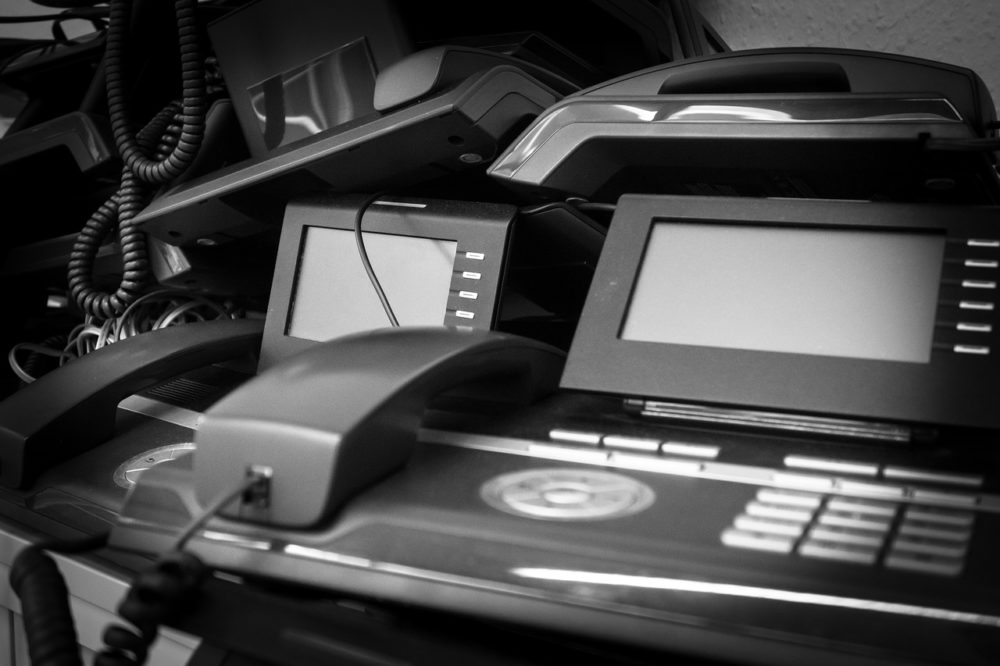Environmental Liability is the potential environmental cost that a consumer acquires when purchasing a product or service. Being aware of your environmental liability as a business is not only ethically responsible but fiscally responsible. Environmental disasters can hurt your reputation and with the EPA’s newly created National Enforcement Initiatives (NEIs), it can lead to massive fines and other financial punishment.
Businesses should consider their impact on the environment, even if they don’t fall into the traditional industries associated with air pollution and chemical spills—and ways to minimize environmental liability. Considering how prominent technology plays in the modern business world the spectre of electronic waste, or e-waste, rears its ugly head as a primary form of environmental liability for a business.
E-Waste as Environmental Liability

Public perception associates most episodes of environmental liability with smokestacks pumping air pollutants or toxic chemicals in our waterways, but e-waste is just as problematic. A business may have dozens of computers, monitors, printers, batteries, phones and the list goes on and on. The big picture is that businesses require, purchase and maintain a large amount of electronic equipment and this equipment is constantly being upgraded and replaced. This replaced equipment is usually thrown away, forming e-waste.
E-waste has a long list of environmentally damaging elements such as:
- Toxins
- Mercury
- Lead
- Nickel
- Barium
- Zinc
- Chromium
- Flame retardants
- And more
Once the waste makes it to the landfill and is exposed to heat and other elements, the toxic chemicals can seep into the soil, bleed into our water systems, and permeate throughout the atmosphere. These toxic elements can affect humans and animals alike, causing many health issues that can affect organs and blood cells.
With e-waste reaching 50 million metric tons annually, this makes it a formidable form of environmental liability and with the forward march of technology happening at a rapid pace, electronic waste is only going to increase. This makes e-waste something all modern businesses should take into consideration.
Here are some striking e-waste stats that demonstrate there’s a lot of work to be done when it comes to recycling:
- 2 percent of America’s total trash found in landfills is E-waste, even though it accounts for 70 percent of the total toxic waste
- Cell phones contain high quantities of precious metals like gold or silver.
- Only 12.5 percent of e-waste is recycled properly
If businesses start focusing on recycling more electronic waste, these negative numbers can decrease; and the number of precious metals in the circular economy will increase.
Tackling Your Environmental Liability
Since many of the components found in e-waste are laced with these hazardous materials, it becomes a necessity for businesses to recycle their trove of old electronics. More importantly, many businesses are required to recycle their electronics. When companies evade regulations and requirements for managing their surplus of e-waste, they could incur legal consequences.
With the impact of social consciousness and the growing trend for boycotting businesses that do not take their part in the managing of the earth’s vital resources; businesses can’t afford to lose out on customer’s due to poor policies on recycling.
In recent years, there’s been a growth in consumer protests linked to environmental activism. With social media making it easier to organize, companies should be aware of the importance of their steadfastness to environmental issues. A new rise in activism has also created an insurgence of employee-based boycotts on companies, which makes it even more important to take a look inwards and push a more forward-thinking agenda when it comes to tackling environmental liabilities.
It’s important to note that e-waste as an environmental liability can be taken care of relatively easily. There’s no reason why a business should find it so difficult to dispose of electronic waste. The resources are all at a business’ fingertips for eliminating this liability.
Old technology might have exceeded its use in the office but it still has value and uses beyond it. Manufacturers purchase e-waste in an effort to minimize manufacturing cost because it’s cheaper than making a whole new product.
Great Lakes Electronics
Great Lake Electronics, can help minimize your environmental liability. As an electronics recycler with many years of experience and expertise we strive to remove any worry you may have about disposing of old electronics.
At our Michigan electronics recycling location, we strive to maintain environmental compliance and have some of the top industry certifications, including:
- ISO 14001:2015
- OHSAS 18001:2007
- Responsible Recycling (R2) Rev. 7/2013
We offer Certificates of Recycling, Certificates of Destruction, and DOD Certificates in compliance with the following regulatory entities:
- Department of Defense (DOD)
- Environment Protection Agency (EPA)
- Health Insurance Portability and Accountability Act (HIPAA)
Contact us today to learn more about how we can help limit environmental liabilities for your company and the world.

